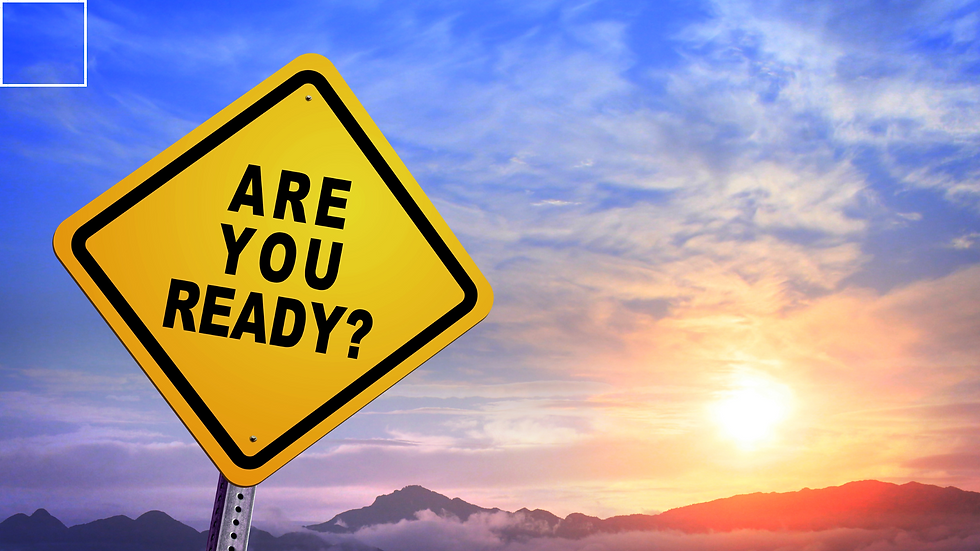The Myth of Readiness
- Timothy Gallant
- Apr 18, 2025
- 2 min read

There’s a story many of us carry that goes something like this: “I’ll make the move when I’m ready.” Or, “I’ll speak up when I feel more confident.” Or, “I’ll start when I know enough.”
It sounds responsible. It feels safe. But often, it’s a myth—one that keeps people stuck in preparation instead of progress.
The truth? Readiness is rarely a feeling. It’s a decision.
We like to imagine that readiness arrives with certainty. That there will be a moment when everything lines up: the timing, the confidence, the external approval. But that moment is almost never as clear as we hope. Most people who’ve done anything meaningful—started a business, taken a risk, changed careers, stepped into leadership—will tell you they didn’t feel ready. They moved anyway.
The Comfort of “Almost”
Waiting to feel ready is comfortable. It lets us stay close to the work without fully committing. We research. We overthink. We prepare. We tell ourselves we’re getting closer—just one more credential, one more draft, one more conversation. But often, “almost ready” becomes a holding pattern that protects us from the vulnerability of actually trying.
That protection comes at a cost. It keeps us out of the game. It delays learning that only happens through action. It reinforces the belief that we’re not capable until someone else says we are. And slowly, it erodes our confidence, because nothing undermines belief in yourself like watching time pass without moving.
Why Readiness Feels So Important
We crave readiness because we associate it with certainty. We think, If I’m fully prepared, I’ll succeed. I won’t fail. I won’t be judged. I won’t mess up. But readiness is a false shield. It doesn’t eliminate risk—it just delays experience.
Here’s what’s real: you’ll probably mess up. You’ll definitely feel uncomfortable. You might be criticized. And still—it will be worth it.
You learn more in motion than you ever will in the margins.
What You Actually Need to Start
You don’t need perfect conditions. You need clarity on why it matters. You don’t need to know everything. You need the willingness to figure things out as you go. You don’t need permission. You need courage.
Courage doesn’t feel like confidence. It feels like showing up when you’re not sure. Trying when you’re not certain. Risking visibility when staying invisible would be easier.
If you’re waiting to feel ready, ask yourself: What would I do if I believed I already had what it takes? And then do one small thing in that direction.
Because here’s the thing: readiness is often the reward, not the prerequisite. You don’t feel ready and then act. You act, and then slowly, you realize—you were always more ready than you thought.
Final Thought
There is no perfect moment. No magic tipping point where fear disappears and clarity arrives fully formed. There is only now, and what you decide to do with it.
You don’t need to wait for readiness. You need to move without it.
You’ll catch up to yourself along the way.




Comments